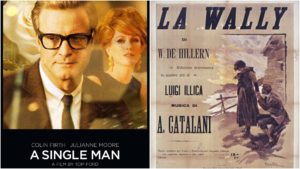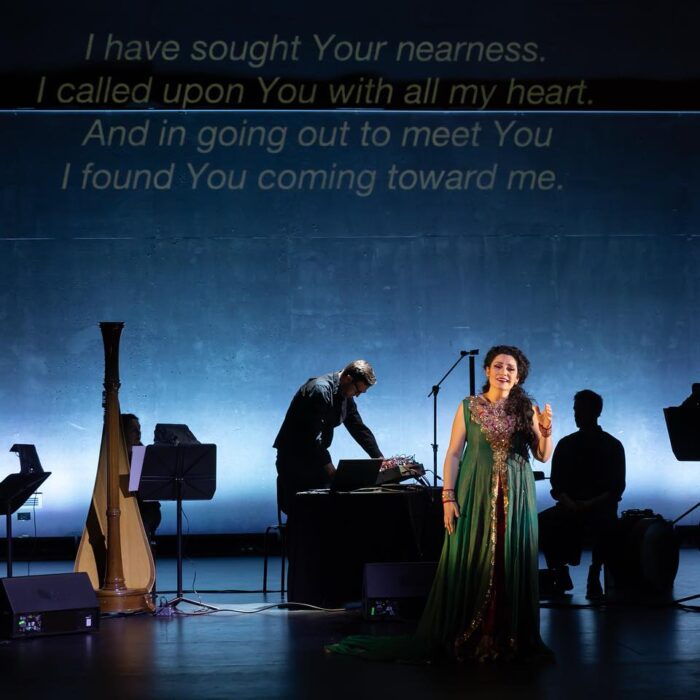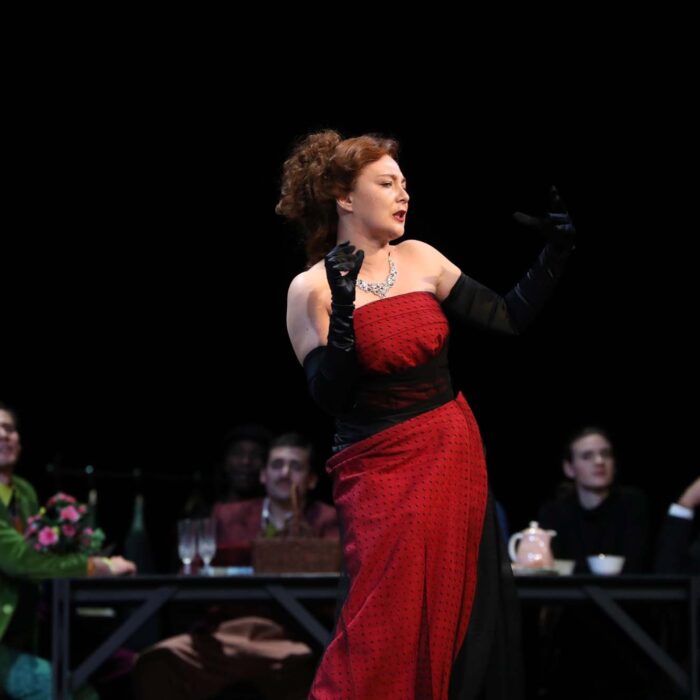
Opera Meets Film: ‘La Wally’s’ Most Famous Aria Balances the Banal & Spiritual in Tom Ford’s ‘A Single Man’
By David Salazar“Opera Meets Film” is a feature dedicated to exploring the way that opera has been employed in cinema. We will select a section or a film in its entirety, highlighting the impact that utilizing the operatic form or sections from an opera can alter our perception of a film that we are viewing. This week’s installment features Tom Ford’s “A Single Man.” As always, spoilers apply.
Based on the Christopher Isherwood novel of the same name, this Tom Ford film, which stars Colin Firth in one of his finest performances to date, tells the story of George Falconer as he tries to cope with his suicidal thoughts in the wake of his lover’s untimely death.
The film, which was Ford’s directorial debut, channels quite a wide range of emotions, the tone shifting from warm to comic to downright depressing. One of the scenes that emphasizes this palette of emotional colors is none other than the one featuring opera.
About halfway through the film, George decides that its time to commit suicide. And as he makes his big attempt, Ford puts together a montage with “Ebben? No andrò lontana?” holding it all together in the backdrop.
Clearcut Meaning
For opera lovers, the choice of the aria makes perfect sense. In the context of the aria, Wally is commenting on leaving home and never seeing it again. “Ne andrò lontana” literally translates to “I will go far away.” The aria’s text returns to this leaving constantly and sorrow and regrets of what must be left behind.
On a pure text to text relation, the aria’s meaning and prominence in this section is clear.
The Banal and the Spiritual
And yet Ford doesn’t make it that easy. On one level, one cannot simply assume that all viewers of the film will immediately understand the intertextual relationship. Moreover, if Ford simply wanted to emphasize the nostalgia and pain of the aria in the scene, he never would have filmed and edited it the way he did. The sequence actually plays up contrasting emotions heavily and George’s suicide attempt is never actually shown as anything more than a joke of sorts.
We see him struggle and fail repeatedly to shoot himself and even try out some rather comic gags to do the deed. At one point he hides in a sleeping bag so as to avoid seeing the gun when he is to fire. But even then he can’t find a way to do it. Laughter is more plausible from an audience member in this section than tears.
And without the aria it would have an emptiness and decidedly more comedic bent to it. With the aria, Ford seems to be seeking a way to play down the pathetic nature of the attempt. He is attempting to balance out the sequence and even potentially give it pathos. In watching the scene with the music turned off, you can really understand just how important it is as a tool for softening the audience’s interactions with George in this moment of crisis.
Ultimately the sequence emphasizes this interplay between the banal and the spiritual is always at the core of all suicide – it can be seen as an act of cowardice that can warrant ridicule and spite, and yet losing a life is always a painful experience leaving behind a massive hole in the world around it. On the surface we can laugh at George’s failed attempts, but on a deeper level, in a realm far off, we weep.


